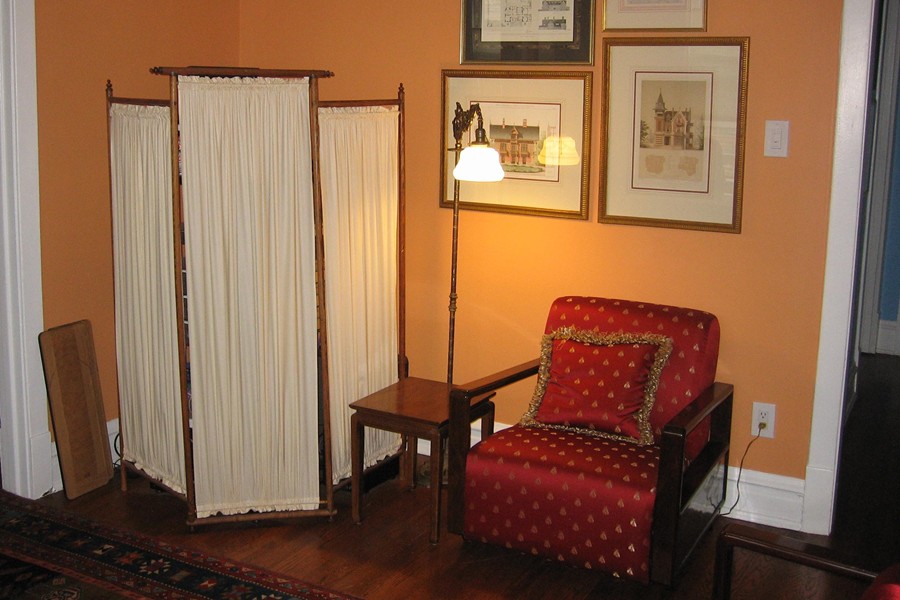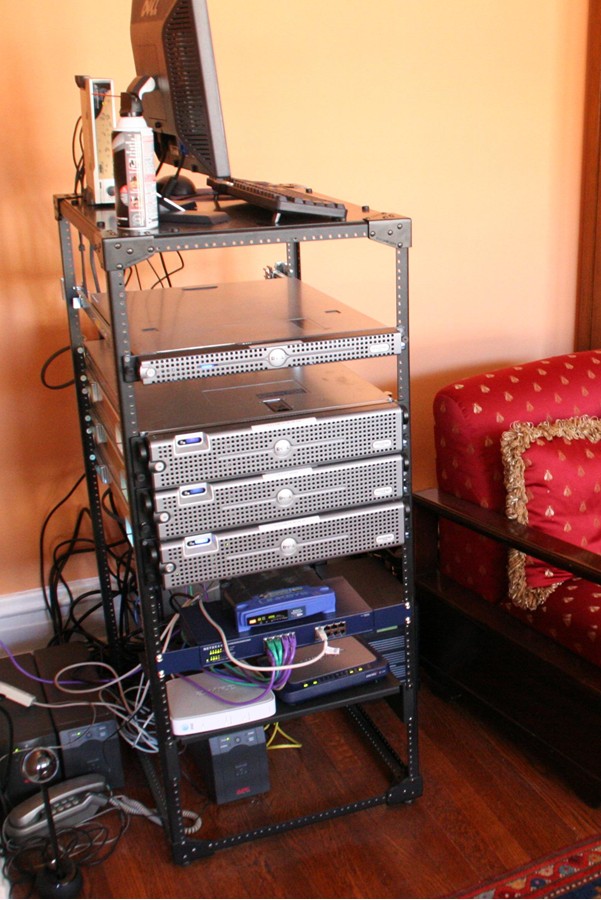Before coming to 10th Magnitude, I was an independent consultant, mostly writing software but occasionally configuring networks. I hate configuring networks. And yet, since 2008, I've had a 48U server rack in my apartment.*
A “U” is 25mm, so this means I have a 1.2 m steel rack behind an antique dressing screen in my living room home office, which sits between my dining room and my bedroom in a compact apartment in Chicago:

It looks modest enough, yes?
On the server rack are three 2U and one 1U rack servers. Behind the server rack is an old desktop box that got drafted for server duties. All of these machines have cooling fans that whirr constantly. Under the servers are the routers, uninterruptible power sources, and wires that connect the servers with the rest of the world:

I spent about $10,000 on the servers and the rack in the last decade. All of the servers are nearing the ends of their lives—the newest is from 2008—and need replacing soon. Plus, every month since then they've used about $90 per month in electricity. They need air conditioning, too, which costs another $30 or so in the summer beyond what I'd spend on my own comfort, because the bastards create a lot of heat.
Imagine my glee when, about two weeks ago, Microsoft began offering a new configuration for its cloud-based Azure platform that dropped the price of moving (most) websites into the cloud under $15 per month. That, combined with the onset of summer in Chicago, pushed me over the edge. I am now committed to getting the server rack out of my house by the end of September. This will accomplish three things:
- It will cost less;
- It will be quieter; and
- Someone else can deal with the hardware and network maintenance.
I’ve already started. Over the weekend I moved my email to Microsoft Exchange Online, which costs $4 per month per mailbox, and so far works better than my old Exchange server. As just one example, if the power goes out in my apartment while I’m traveling, I won’t lose email connectivity.
Tomorrow I’ll describe the process in detail. Spoiler: the only thing that made me swear was getting my mobile phone connected.
* Before 2008, the rack was in my office in Evanston. I didn’t want to keep the office when I moved to Lincoln Park, so the servers moved in with me "just to save money." Never a good idea.